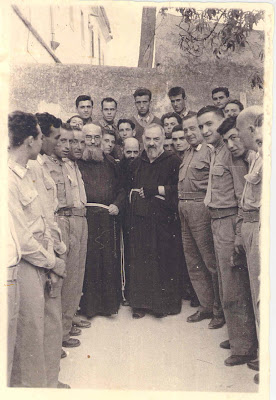General Bernardo Rosini of the United Air Command reported that:
“Each time that the pilots returned from their missions, they spoke of this Friar that appeared in the sky and diverted their airplanes, making them turn back. Everyone was talking about these incredible stories. But since the episodes kept recurring, the Commanding General of USAF General Nathan F. Twining, who happened to be in Bari, decided to pilot himself a squadron of bombers to destroy a target near San Giovanni Rotondo. When he and his pilots were in the vicinity of the target, they saw the figure of a monk with upraised hands appear in the sky. The bombs got loose from the plains falling in open areas, and the planes made a sharp turn to return to base without the pilots intervening. Back on the ground, everybody asked everybody else about the happening and wanted to know who was that friar. The General was told about Padre Pio and decided to visit him with the pilots in that squadron. The pilots immediately recognized Padre Pio, and he told the general: ‘So you are the one that wanted to destroy everything.'” The general became a friend of Padre Pio.
Infallible Catholic, Padre Pio on Bilocation, April 23, 2012
The Feast Day of St. Pio of Pietrelcina is September 23. You can read more about the incident of the “flying monk” here:
Research provided by author Frank Rega about Padre Pio, The Examiner, May 9, 2011


